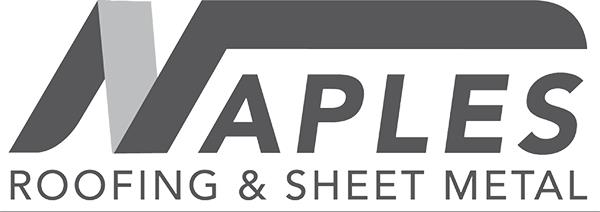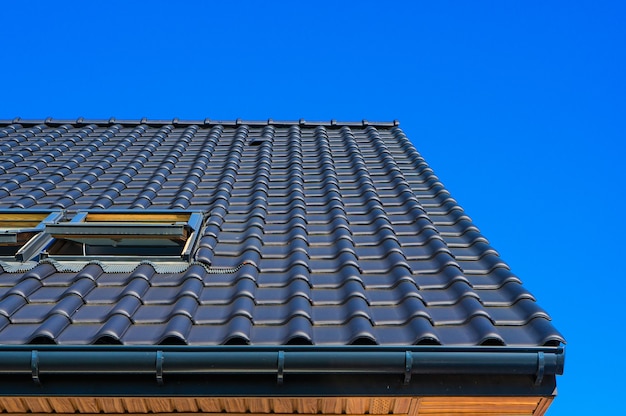Types of Sheet Roofing Materials (Pros & Cons)
When it comes to protecting your home or commercial building roofing material , the roof plays a vital role. A well-constructed roof not only shields you from the elements but also enhances the aesthetics and value of your property. Among the various roofing options available, sheet roofing materials have gained significant popularity due to their durability, cost-effectiveness, and versatility.
Understanding sheet roofing materials and their pros/cons are crucial for informed decisions when replacing a roof or planning construction. Firstly let us learn about Sheet roofing materials in general.
Sheet Roofing Materials:
Sheet roofing materials are large, flat sheets that cover the entire roof surface. They come in a variety of materials, each offering its own unique set of advantages and disadvantages. From asphalt shingles to metal roofing, corrugated fiberglass panels to polycarbonate sheets. There is a wide range of options to choose from, catering to different needs and preferences. Roofing companies in usa use a variety of sheet roofing materials according to the needs and requirements of clients.
Now, let us delve into the types of sheet roofing materials with the help of this blog. We will explore the various kinds and pros and cons of each of them.
Types of Sheet Roofing Materials:
1. Asphalt Shingles:
Asphalt shingles are a common roofing material composed of a fiberglass or organic base saturated with asphalt and coated with mineral granules. They are popular for their affordability, ease of installation, a wide range of styles and colors, and decent fire resistance. However, their durability can vary based on climate conditions.
PROS-
- Affordability: Asphalt shingles are one of the most cost-effective roofing materials available, making them a popular choice for budget-conscious homeowners.
- Versatility: They come in a wide range of styles, textures, and colors. Homeowners can choose an option that complements their architectural style and preferences.
- Easy Installation: Asphalt shingles are relatively easy to install, making the roofing process quicker and more efficient compared to other roofing materials.
- Fire Resistance: Most asphalt shingles have a Class A fire rating. This offers a high level of fire resistance and increases the safety of the structure.
CONS-
- Lifespan: Compared to some other roofing materials like metal or tile, asphalt shingles have a relatively shorter lifespan
- Vulnerability to Extreme Weather: While asphalt shingles provide good protection under normal weather conditions, however more susceptible to damage from strong winds, hail, etc.
- Heat Absorption: Asphalt shingles can absorb heat, which can increase cooling costs during hot summer months, especially in regions with high temperatures.
2. Metal Roofing:
Metal roofing is a durable and long-lasting sheet roofing material made of various metals, such as steel, aluminum, or copper. It provides exceptional resistance against fire, extreme weather conditions, and pests. Metal roofs are energy-efficient, reflective, and available in a range of styles. This makes them a popular choice for both residential and commercial buildings.
PROS-
- Durability: Metal roofing is highly durable and can last for several decades, outperforming many other roofing materials. It is resistant to cracking, warping, and shrinking, providing long-lasting protection.
- Weather Resistance: Such roofs offer excellent resistance against extreme weather conditions, including high winds, heavy rainfall, snow, and hail.
- Energy Efficiency: Metal roofs are highly reflective, allowing them to reflect solar heat, reducing cooling costs in hot climates. Additionally, they can be installed with insulation to enhance energy efficiency.
- Aesthetics: Metal roofing comes in a variety of styles, finishes, and colors, providing versatility in design. It can complement various architectural styles and add an attractive, modern look to the building.
CONS-
- Initial Cost: Metal roofing tends to have a higher upfront cost compared to some other roofing materials. However, the long lifespan and durability can offset this initial investment over time.
- Noise: Without proper insulation, metal roofs can be noisy during heavy rainfall or hailstorms. However, insulation and underlayment can minimize noise levels effectively.
- Professional Installation: Metal roofing installation typically requires specialized skills and equipment. Hiring professional installers ensures proper installation and maximizes the benefits of metal roofing.
3. Fiberglass Corrugated Panels:
Corrugated fiberglass panels are lightweight sheet roofing materials composed of fiberglass reinforced with resin. They are commonly used in agricultural, industrial, and commercial applications. These panels offer affordability, ease of installation, corrosion resistance, and allow natural light transmission, although they may become brittle and prone to cracking over time.
PROS-
- Lightweight: Corrugated fiberglass panels are lightweight, making them easy to handle and install.
- Affordability: They are generally more affordable compared to other sheet roofing materials, making them a cost-effective option.
- Corrosion Resistance: Fiberglass panels are highly resistant to corrosion, making them suitable for areas with high humidity or exposure to chemicals.
- Natural Light Transmission: Corrugated fiberglass panels allow natural light to filter through. Also, reduces the need for artificial lighting during the day and creates a brighter indoor environment.
CONS-
- Durability: Over time, corrugated fiberglass panels may become brittle, especially in areas with frequent temperature fluctuations, which can lead to cracking or damage.
- Impact Resistance: Fiberglass panels are not as impact-resistant as some other materials, making them more susceptible to damage from hail, falling debris, or heavy objects.
- UV Degradation: Prolonged exposure to UV radiation can cause the panels to yellow or become discolored over time.
4. Polycarbonate Sheets:
Polycarbonate sheets are transparent or translucent sheet roofing materials made from durable thermoplastic. They offer exceptional impact resistance, and light transmission, and are lightweight. Polycarbonate sheets are commonly used in applications where transparency, strength, and weather resistance are desired, such as skylights, greenhouse roofs, or canopies.
PROS-
- Impact Resistance: Polycarbonate sheets are highly durable and resistant to impact. These are unbreakable and suitable for areas prone to hail or heavy storms.
- Light Transmission: These sheets allow excellent light transmission, providing natural illumination to spaces below while reducing the need for artificial lighting.
- Weather Resistance: They offer excellent resistance against UV radiation, weathering, and extreme temperature variations.
- Design Versatility: Polycarbonate sheets are available in various colors, thicknesses, and finishes.
CONS-
- Yellowing and Degradation: Over time, polycarbonate sheets may undergo yellowing or degradation due to prolonged exposure to UV radiation.
- Thermal Expansion: The material’s thermal expansion and contraction properties must be considered during installation to prevent buckling or stress on fasteners.
- Cost: Polycarbonate sheets are more expensive upfront compared to certain traditional roofing materials. Although their long lifespan and durability can offset this initial investment over time.
5. PVC Roofing:
PVC roofing refers to roofing materials made from polyvinyl chloride, a synthetic plastic polymer. These roofs offer excellent resistance to chemicals, fire, and UV radiation. They also provide efficient waterproofing, easy maintenance, and durability. PVC roofing is commonly used in commercial and industrial applications, but it can also be suitable for residential buildings.
PROS-
- Chemical Resistance: PVC roofing is highly resistant to chemicals. Hence, suitable for industrial or commercial settings.
- Fire Resistance: These are excellent fire resistance, as they are inherently flame-retardant and do not easily support combustion.
- UV Radiation Resistance: They are also resistant to UV radiation, minimizing the risk of degradation.
- Waterproofing: PVC roofs provide efficient waterproofing, effectively preventing water infiltration and protecting the underlying structure.
CONS-
- Cost: PVC roofing tends to have a higher initial cost. However, the long lifespan and low maintenance requirements can offset this initial investment over time.
- Installation Complexity: Proper installation of PVC roofing requires specific techniques and skills, often necessitating professional assistance.
- Limited Color Options: PVC roofing have limited color options, which may limit design choices.
Wrapping it up:
Now, as you know the advantages and disadvantages of various sheet roofing materials, it will help you choose the right one. You can make an informed decision that suits your specific needs and ensures a reliable and long-lasting roofing solution. Remember to consult with roofing professionals for expert advice and installation.
Naples Roofing is a professional roofing service provider serving a wide array of services. We serve various industries such as commercial and industrial. All our roofers are well-versed in their respective fields. We are authorized roofing contractors.


